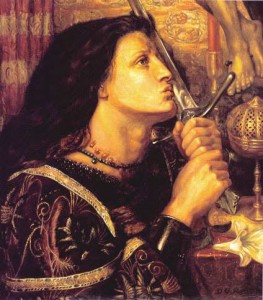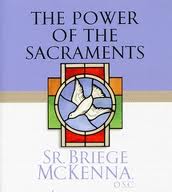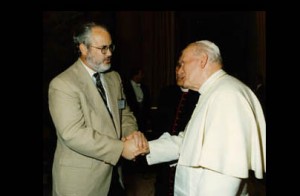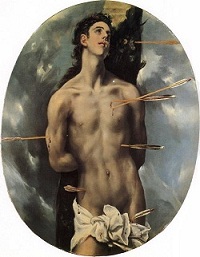 St. Sebastian was a captain of the guard in the Roman military. When the Emperor Diocletian turned on the Christians and began what would be called the “Great Persecution”, Sebastian refused to harm the followers of Christ.
St. Sebastian was a captain of the guard in the Roman military. When the Emperor Diocletian turned on the Christians and began what would be called the “Great Persecution”, Sebastian refused to harm the followers of Christ.
During Diocletian’s persecution of the Christians, Sebastian visited them in prison, bringing supplies and comfort. Reported to have healed the wife of a brother soldier by making the Sign of the Cross over her. He converted soldiers and a governor to Christianity. Diocletian reproached Sebastian for his supposed betrayal, and he commanded him to be led to the field and there to be bounden to a stake to be shot at. “And the archers shot at him till he was as full of arrows as an urchin,” leaving him there for dead. Miraculously, the arrows did not kill him. The widow of Castulus, Irene of Rome (later St. Irene), went to retrieve his body to bury it, and found he was still alive. She brought him back to her house and nursed him back to health. The other residents of the house doubted he was a Christian. One of those was a girl who was blind. Sebastian asked her “Do you wish to be with God?”, and made the sign of the Cross on her head. “Yes”, she replied, and immediately regained her sight. Sebastian then stood on a step and harangued Diocletian as he passed by; the emperor had him beaten to death and his body thrown in a privy. But in an apparition Sebastian told a Christian widow where they might find his body undefiled and bury it “at the catacombs by the apostles.”
Because Sebastian had been thought to have been killed by the arrows, and yet was not, and then later was killed by the same emperor who had ordered him shot, he is sometimes known as the saint who was martyred twice. – wiki
Tags: catholic, catholic podcast, catholic prayer, cathollc spirituality, emperor diocletian, great persecution, irene, roman military, st sebastian
This entry was posted on Thursday, January 20th, 2011 at 12:37 pm
You can follow any responses to this entry through the RSS 2.0 feed.
In time of desolation never to make a change; but to be firm and constant in the resolutions and determination in which one was the day preceding such desolation, or in the determination in which he was in the preceding consolation. Because, as in consolation it is rather the good spirit who guides and counsels us, so in desolation it is the bad, with whose counsels we cannot take a course to decide rightly..
[powerpress]
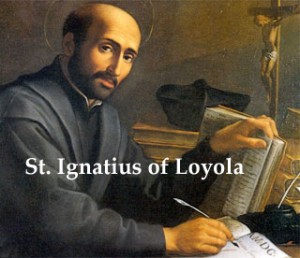 The Discernment of Spirits: Setting the Captives Free – Serves as an introduction to the Spiritual Exercises of St. Ignatius of Loyola
The Discernment of Spirits: Setting the Captives Free – Serves as an introduction to the Spiritual Exercises of St. Ignatius of Loyola
The 14 Rules for Discerning Spirits –
“The Different Movements Which Are Caused In The Soul”
as outlined by St. Ignatius of Loyola can be found here
Father Timothy M. Gallagher, O.M.V., was ordained in 1979 as a member of the Oblates of the Virgin Mary, a religious community dedicated to retreats and spiritual formation according to the Spiritual Exercises of St. Ignatius. Â Fr. Gallagher is featured on the EWTN series “Living the Discerning Life: Â The Spiritual Teachings of St. Ignatius of Loyola”.Â
For more information on how to obtain copies of Fr. Gallaghers’s various books and audio which are available for purchase, please visit  his  website: www.frtimothygallagher.org
 For the other episodes in this series visit
Fr. Timothy Gallagher’s “Discerning Hearts†page
Tags: catholic, catholic podcast, catholic prayer, cathollc spirituality, discernment of spirits, Father Timothy M. Gallagher, Timothy Gallagher
This entry was posted on Thursday, January 20th, 2011 at 7:53 am
You can follow any responses to this entry through the RSS 2.0 feed.
The Second Thursday in Ordinary Time – from the Gospel of Mark the full reading and reflection
“All who had diseases pressed upon Jesus to touch him”
an excerpt from today’s reflection by Don Schwager: 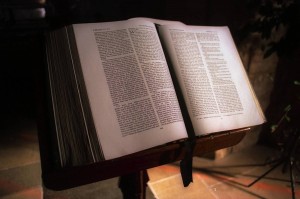
Is there anything holding you back from giving yourself unreservedly to God? Jesus offered freedom to everyone who sought him out. Wherever Jesus went the people came to him because they had heard all the things he did. They were hungry for God and desired healing from their afflictions. In faith they pressed upon Jesus to touch him. As they did so power came from Jesus and they were healed. Even demons trembled in the presence of Jesus and acknowledged his true identity: You are the Son of God. When you hear God’s word and consider all that Jesus did, how do you respond? With doubt or with expectant faith? With skepticism or with confident expectation? Ask the Lord to increase your faith in his saving power and grace.
“Lord Jesus Christ, you are the Son of God and the Savior of the world. Inflame my heart with a burning love for you and with an expectant faith in your saving power. Set me free from all that hinders me from drawing closer to you.”
for the full reflection visit : Daily Reading and Meditation
Tags: catholic, catholic podcast, catholic prayer, cathollc spirituality, confident expectation, demons, diseases, don schwager, freedom, gospel of mark
This entry was posted on Thursday, January 20th, 2011 at 7:32 am
You can follow any responses to this entry through the RSS 2.0 feed.
The Second Wednesday in Ordinary Time – from the Gospel of Mark the full reading and reflection
“The Son of man is Lord even of the Sabbath”
an excerpt from today’s reflection by Don Schwager: 
Christians celebrate Sunday as the Lord’s Day, to commemorate God’s work of redemption in Jesus Christ and the new work of creation he accomplished through Christ’s death and resurrection. Taking “our sabbath rest” is a way of expressing honor to God for all that he has done for us. Such “rest” however does not exempt us from 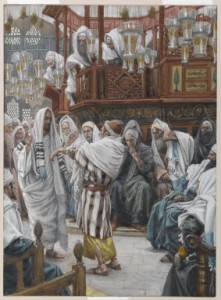 our love for our neighbor. If we truly love the Lord above all else, then the love of God will overflow to love of neighbor as well. Do you honor the Lord in the way you celebrate Sunday, the Lord’s Day and in the way you treat you neighbor?
our love for our neighbor. If we truly love the Lord above all else, then the love of God will overflow to love of neighbor as well. Do you honor the Lord in the way you celebrate Sunday, the Lord’s Day and in the way you treat you neighbor?
“Lord Jesus, in your victory over sin and death on the cross and in your resurrection you give us the assurance of sharing in the eternal rest of heaven. Transform my heart with your love that I may freely serve my neighbor for his good and find joy and refreshment in the celebration of Sunday as the Lord’s Day.”
for the full reflection visit : Daily Reading and Meditation
Tags: catholic, catholic podcast, catholic prayer, cathollc spirituality, don schwager, gospel of mark, sabbath rest
This entry was posted on Wednesday, January 19th, 2011 at 7:40 am
You can follow any responses to this entry through the RSS 2.0 feed.
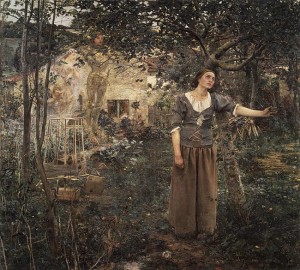 ommitment to sacramental life and to prayer: daily participation in Mass, frequent Confession and Communion and long periods of silent prayer before the Crucified One or the image of Our Lady. The young French peasant girl’s compassion and dedication in the face of her people’s suffering were intensified by her mystical relationship with God. One of the most original aspects of this young woman’s holiness was precisely this link between mystical experience and political mission. The years of her hidden life and her interior development were followed by the brief but intense two years of her public life: a year of action and a year of passion. At the beginning of 1429, Joan began her work of liberation. The many witnesses show us this young woman who was only 17 years old as a very strong and determined person, able to convince people who felt insecure and discouraged. Overcoming all obstacles, she met the Dauphin of France, the future King Charles VII, who subjected her to an examination in Poitiers by some theologians of the university. Their opinion was positive: they saw in her nothing evil, only a good Christian. On 22 March 1429 Joan dictated an important letter to the King of England and to his men at arms who were besieging the city of Orléans (ibid., pp. 221-222). Hers was a true proposal of peace in justice between the two Christian peoples in light of the Name of Jesus and Mary, but it was rejected and Joan had to gird herself to fight for the city’s liberation which took place on 8 May. The other culminating moment of her political action was the coronation of King Charles VII in Rheims on 17 July 1429. For a whole year, Joan lived with the soldiers, carrying out among them a true mission of evangelization. Many of them testified to her goodness, her courage and her extraordinary purity. She was called by all and by herself “La pucelle†(“the Maidâ€), that is, virgin. Joan’s passion began on 23 May 1430, when she fell into enemy hands and was taken prisoner. On 23 December she was led to the city of Rouen. There the long and dramatic Trial of Condemnation took place, that began in February 1431 and ended on 30 May with her being burned at the stake.
ommitment to sacramental life and to prayer: daily participation in Mass, frequent Confession and Communion and long periods of silent prayer before the Crucified One or the image of Our Lady. The young French peasant girl’s compassion and dedication in the face of her people’s suffering were intensified by her mystical relationship with God. One of the most original aspects of this young woman’s holiness was precisely this link between mystical experience and political mission. The years of her hidden life and her interior development were followed by the brief but intense two years of her public life: a year of action and a year of passion. At the beginning of 1429, Joan began her work of liberation. The many witnesses show us this young woman who was only 17 years old as a very strong and determined person, able to convince people who felt insecure and discouraged. Overcoming all obstacles, she met the Dauphin of France, the future King Charles VII, who subjected her to an examination in Poitiers by some theologians of the university. Their opinion was positive: they saw in her nothing evil, only a good Christian. On 22 March 1429 Joan dictated an important letter to the King of England and to his men at arms who were besieging the city of Orléans (ibid., pp. 221-222). Hers was a true proposal of peace in justice between the two Christian peoples in light of the Name of Jesus and Mary, but it was rejected and Joan had to gird herself to fight for the city’s liberation which took place on 8 May. The other culminating moment of her political action was the coronation of King Charles VII in Rheims on 17 July 1429. For a whole year, Joan lived with the soldiers, carrying out among them a true mission of evangelization. Many of them testified to her goodness, her courage and her extraordinary purity. She was called by all and by herself “La pucelle†(“the Maidâ€), that is, virgin. Joan’s passion began on 23 May 1430, when she fell into enemy hands and was taken prisoner. On 23 December she was led to the city of Rouen. There the long and dramatic Trial of Condemnation took place, that began in February 1431 and ended on 30 May with her being burned at the stake.
It was a great and solemn Trial, at which two ecclesiastical judges presided, Bishop Pierre Cauchon and the Inquisitor Jean le Maistre, but in fact it was conducted entirely by a large group of theologians from the renowned University of Paris, who took part in the Trial as assessors. They were French clerics, who, on the side politically opposed to Joan’s, had a priori a negative opinion of both her and her mission. This Trial is a distressing page in the history of holiness and also an illuminating page on the mystery of the Church which, according to the words of the Second Vatican Council, is “at once holy and always in need of purification†(Lumen Gentium, n. 8).
The Trial was the dramatic encounter between this Saint and her judges, who were clerics. Joan was accused and convicted by them, even condemned as a heretic and sent to the terrible death of being burned at the stake. Unlike the holy theologians who had illuminated the University of Paris, such as St Bonaventure, St Thomas Aquinas and Bl. Duns Scotus, of whom I have spoken in several Catecheses, these judges were theologians who lacked charity and the humility to see God’s action in this young woman. The words of Jesus, who said that God’s mysteries are revealed to those who have a child’s heart while they remain hidden to the learned and the wise who have no humility (cf. Lk 10:21), spring to mind. Thus, Joan’s judges were radically incapable of understanding her or of perceiving the beauty of her soul. They did not know that they were condemning a Saint. Joan’s appeal to the Pope, on 24 May, was rejected by the tribunal. On the morning of 30 May, in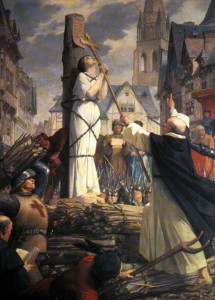 prison, she received Holy Communion for the last time and was immediately led to her torture in the Old Market Square. She asked one of the priests to hold up a processional Cross in front of the stake. Thus she died, her gaze fixed upon the Crucified Jesus and crying out several times the Name of Jesus (PNul, I, p. 457; cf. Catechism of the Catholic Church, n. 435). About 25 years later the Trial of Nullity, which opened under the authority of Pope Calixtus III, ended with a solemn sentence that declared the condemnation null and void (7 July 1456; PNul, II, pp. 604-610). This long trial, which collected the evidence of witnesses and the opinions of many theologians, all favourable to Joan, sheds light on her innocence and on her perfect fidelity to the Church. Joan of Arc was subsequently canonized by Benedict XV in 1920. Dear brothers and sisters, the Name of Jesus, invoked by our Saint until the very last moments of her earthly life was like the continuous breathing of her soul, like the beating of her heart, the centre of her whole life. The Mystery of the Charity of Joan of Arc which so fascinated the poet Charles Péguy was this total love for Jesus and for her neighbour in Jesus and for Jesus. This Saint had understood that Love embraces the whole of the reality of God and of the human being, of Heaven and of earth, of the Church and of the world. Jesus always had pride of place in her life, in accordance to her beautiful affirmation: “We must serve God first†(PCon, I, p. 288; cf. Catechismo della Chiesa Cattolica, n. 223). Loving him means always doing his will. She declared with total surrendur and trust: “I entrust myself to God my Creator, I love him with my whole my heart†(PCon, I, p. 337). With the vow of virginity, Joan consecrated her whole being exclusively to the one Love of Jesus: “it was the promise that she made to Our Lord to preserve the virginity of her body and her mind well†(PCon, I, pp. 149-150). Virginity of soul is the state of grace, a supreme value, for her more precious than life. It is a gift of God which is to be received and preserved with humility and trust. One of the best known texts of the first Trial concerns precisely this: “Asked if she knew that she was in God’s grace, she replied: ‘If I am not, may it please God to put me in it; if I am, may it please God to keep me there’†(ibid., p. 62; cf. Catechism of the Catholic Church, n. 2005).
prison, she received Holy Communion for the last time and was immediately led to her torture in the Old Market Square. She asked one of the priests to hold up a processional Cross in front of the stake. Thus she died, her gaze fixed upon the Crucified Jesus and crying out several times the Name of Jesus (PNul, I, p. 457; cf. Catechism of the Catholic Church, n. 435). About 25 years later the Trial of Nullity, which opened under the authority of Pope Calixtus III, ended with a solemn sentence that declared the condemnation null and void (7 July 1456; PNul, II, pp. 604-610). This long trial, which collected the evidence of witnesses and the opinions of many theologians, all favourable to Joan, sheds light on her innocence and on her perfect fidelity to the Church. Joan of Arc was subsequently canonized by Benedict XV in 1920. Dear brothers and sisters, the Name of Jesus, invoked by our Saint until the very last moments of her earthly life was like the continuous breathing of her soul, like the beating of her heart, the centre of her whole life. The Mystery of the Charity of Joan of Arc which so fascinated the poet Charles Péguy was this total love for Jesus and for her neighbour in Jesus and for Jesus. This Saint had understood that Love embraces the whole of the reality of God and of the human being, of Heaven and of earth, of the Church and of the world. Jesus always had pride of place in her life, in accordance to her beautiful affirmation: “We must serve God first†(PCon, I, p. 288; cf. Catechismo della Chiesa Cattolica, n. 223). Loving him means always doing his will. She declared with total surrendur and trust: “I entrust myself to God my Creator, I love him with my whole my heart†(PCon, I, p. 337). With the vow of virginity, Joan consecrated her whole being exclusively to the one Love of Jesus: “it was the promise that she made to Our Lord to preserve the virginity of her body and her mind well†(PCon, I, pp. 149-150). Virginity of soul is the state of grace, a supreme value, for her more precious than life. It is a gift of God which is to be received and preserved with humility and trust. One of the best known texts of the first Trial concerns precisely this: “Asked if she knew that she was in God’s grace, she replied: ‘If I am not, may it please God to put me in it; if I am, may it please God to keep me there’†(ibid., p. 62; cf. Catechism of the Catholic Church, n. 2005).
Our Saint lived prayer in the form of a continuous dialogue with the Lord who also illuminated her dialogue with the judges and gave her peace and security. She asked him with trust: Sweetest God, in honour of your holy Passion, I ask you, if you love me, to show me how I must answer these men of the Church†(PCon, I, p. 252). Joan saw Jesus as the “King of Heaven and of the earthâ€. She therefore had painted on her standard the image of “Our Lord holding the world†(ibid., p. 172): the emblem of her political mission. The liberation of her people was a work of human justice which Joan carried out in charity, for love of Jesus. Her holiness is a beautiful example for lay people engaged in politics, especially in the most difficult situations. Faith is the light that guides every decision, as a century later another great Saint, the Englishman Thomas More, was to testify.
In Jesus Joan contemplated the whole reality of the Church, the “Church triumphant†of Heaven, as well as the “Church militant†on earth. According to her words, “About Jesus Christ and the Church, I simply know they’re just one thing†(ibid., p. 166). This affirmation, cited in theCatechism of the Catholic Church (n. 795), has a truly heroic character in the context of theTrial of Condemnation, before her judges, men of the Church who were persecuting and condemning her. In the Love of Jesus Joan found the strength to love the Church to the very end, even at the moment she was sentenced. I like to recall that St Joan of Arc had a profound influence on a young Saint of the modern age: Thérèse of the Child Jesus. In the context of a completely different life, spent in the cloister, the Carmelite of Lisieux felt very close to Joan, living in the heart of the Church and participating in Christ’s suffering for the world’s salvation. The Church has brought them together as Patronesses of France, after the Virgin Mary. St Thérèse expressed her desire to die, like Joan, with the Name of Jesus on her lips (Manoscritto B, 3r), and she was motivated by the same great love for Jesus and her neighbour, lived in consecrated virginity. Dear brothers and sisters, with her luminous witness St Joan of Arc invites us to a high standard of Christian living: to make prayer the guiding motive of our days; to have full trust in doing God’s will, whatever it may be; to live charity without favouritism, without limits and drawing, like her, from the Love of Jesus a profound love for the Church. Thank you.
Tags: catholic, catholic church, catholic podcast, catholic prayer, cathollc spirituality, Crucified Jesus, French Saint, Joan of Arc
This entry was posted on Wednesday, January 19th, 2011 at 12:12 am
You can follow any responses to this entry through the RSS 2.0 feed.
The Second Tuesday in Ordinary Time – from the Gospel of Mark the full reading and reflection
“The Son of man is Lord even of the Sabbath”
an excerpt from today’s reflection by Don Schwager: 
What does the commandment “keep holy the Sabbath” require of us? Or better yet, what is the primary intention behind this command? The religious leaders confronted Jesus on this issue. The “Sabbath rest” was meant to be a time to remember and celebrate God’s goodness and the goodness of his work, both in creation and redemption. It was a day set apart for the praise of God, his work of creation, and his saving actions on our behalf. It was intended to bring everyday work to a halt and to provide needed rest and refreshment. Jesus’ disciples are scolded by the scribes and Pharisees, not for plucking and eating corn from the fields, but for doing so on the Sabbath. In defending his disciples, Jesus argues from the scriptures that human need has precedence over ritual custom.
When David and his men were fleeing for their lives, they sought food from Ahim’elech the priest (1 Samuel 21:1-6). The only bread he had was the holy bread offered in the Temple. None but the priests were allowed to eat it. In their hunger, David and his men ate of this bread. Jesus reminds the Pharisees that the Sabbath was given for our benefit, to refresh and renew us in living for God. It was intended for good and not for evil. Withholding mercy and kindness in response to human need was not part of God’s intention that we rest from unnecessary labor. Do you honor the Lord in the way you treat your neighbor and celebrate the Lord’s Day?
“Lord Jesus, may I give you fitting honor in the way I live my life and in the way I treat my neighbor. May I honor the Lord’s Day as a day holy to you. And may IÂ always treat others with the same mercy and kindness which you have shown to me. Free me from a critical and intolerant spirit that I may always seek the good of my neighbor.”
for the full reflection visit : Daily Reading and Meditation
Tags: catholic, catholic podcast, catholic prayer, cathollc spirituality, don schwager, gospel of mark, jesus disciples, ordinary time, scribes and pharisees
This entry was posted on Tuesday, January 18th, 2011 at 5:49 am
You can follow any responses to this entry through the RSS 2.0 feed.
Episode 6 -The Fourth Rule: 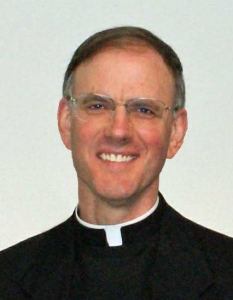
Of Spiritual Desolation. I call desolation all the contrary of the third rule, such as darkness of soul, disturbance in it, movement to things low and earthly, the unquiet of different agitations and temptations, moving to want of confidence, without hope, without love, when one finds oneself all lazy, tepid, sad, and as if separated from his Creator and Lord.
Because, as consolation is contrary to desolation, in the same way the thoughts which come from consolation are contrary to the thoughts which come from desolation.
[powerpress]
 The Discernment of Spirits: Setting the Captives Free – Serves as an introduction to the Spiritual Exercises of St. Ignatius of Loyola
The Discernment of Spirits: Setting the Captives Free – Serves as an introduction to the Spiritual Exercises of St. Ignatius of Loyola
The 14 Rules for Discerning Spirits –
“The Different Movements Which Are Caused In The Soul”
as outlined by St. Ignatius of Loyola can be found here
Father Timothy M. Gallagher, O.M.V., was ordained in 1979 as a member of the Oblates of the Virgin Mary, a religious community dedicated to retreats and spiritual formation according to the Spiritual Exercises of St. Ignatius. Â Fr. Gallagher is featured on the EWTN series “Living the Discerning Life: Â The Spiritual Teachings of St. Ignatius of Loyola”.Â
For more information on how to obtain copies of Fr. Gallaghers’s various books and audio which are available for purchase, please visit  his  website: www.frtimothygallagher.org
 For the other episodes in this series visit
Fr. Timothy Gallagher’s “Discerning Hearts†page
Tags: catholic, catholic podcast, catholic prayer, cathollc spirituality
This entry was posted on Monday, January 17th, 2011 at 8:16 am
You can follow any responses to this entry through the RSS 2.0 feed.
Part 2 of 3…Sr. Briege McKenna O.S.C. is a tremendous blessing for all of us in the Church! “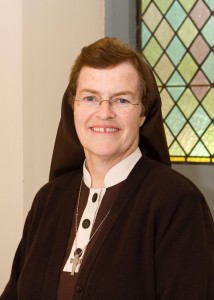 The Power of the Sacraments” is a beautiful work which helps us all to appreciate the gift of grace that flows through the sacraments. There is such a hunger in the hearts of God’s children today for healing and peace. Sr. Briege, in her beautiful maternal nurturing way, helps us to see that the answer is right in front of us reaching out to us right now…he is Jesus Christ. “Miracles Do Happen” is her beautiful book recounting her miraculous healing and her call to mission to the world. It also expresses her great love and concern for the priesthood. Her insights are tremendous…her love for Christ and her bride, the Church, is a glorious witness and light for today’s world. She is truly one of the most inspiring persons I have ever encountered!
The Power of the Sacraments” is a beautiful work which helps us all to appreciate the gift of grace that flows through the sacraments. There is such a hunger in the hearts of God’s children today for healing and peace. Sr. Briege, in her beautiful maternal nurturing way, helps us to see that the answer is right in front of us reaching out to us right now…he is Jesus Christ. “Miracles Do Happen” is her beautiful book recounting her miraculous healing and her call to mission to the world. It also expresses her great love and concern for the priesthood. Her insights are tremendous…her love for Christ and her bride, the Church, is a glorious witness and light for today’s world. She is truly one of the most inspiring persons I have ever encountered!
[powerpress]
Click here to be taken to Sr. Briege’s website “St. Clare Sisters Retreat Ministry”
You can find both of Sr. Briege McKenna’s books here
St. Clare Sisters Retreat Ministry
P.O. Box 1559
Palm Harbor, FL 34682, U.S.A.
Office: #727-786-3821
Fax: #727-787-3741
Prayerline: #727-781-5906
www.sisterbriege.com
For more Sister Briege on Inside the Pages:
IP#64 Sr. Briege McKenna – The Power of the Sacraments part 1 on Inside the Pages
IP#66 Sr. Briege McKenna – The Power of the Sacraments part 3 on Inside the Pages
prayer@sisterbriege.com
info@sisterbriege.com
Tags: Briege McKenna, catholic, catholic podcast, catholic prayer, cathollc spirituality
This entry was posted on Monday, January 17th, 2011 at 7:44 am
You can follow any responses to this entry through the RSS 2.0 feed.
The Second Monday in Ordinary Time – from the Gospel of Mark the full reading and reflection
“Can the wedding guests fast while the bridegroom is with them?”
an excerpt from today’s reflection by Don Schwager: 
Jesus goes on to warn his disciples about the problem of the “closed mind” that refuses to learn new things. Jesus used an image familiar to his audience – new and old wineskins. In Jesus’ times, wine was stored in wineskins, not bottles. New wine poured into skins was still fermenting. The gases exerted gave pressure. New wine skins were elastic enough to take the pressure, but old wine skins easily burst because they were hard. What did Jesus mean by this comparison? Are we to reject the old in place of the new? Just as there is a right place and a right time for fasting and for feasting, so there is a right place for the old as well as the new. Jesus says the kingdom of heaven is like a householder who brings out of his treasure what is new and what is old (Matthew 13:52). How impoverished we would be if we only had the Old Testament or the New Testament, rather than both. The Lord gives us wisdom so we can make the best use of both the old and the new. He doesn’t want us to hold rigidly to the past and to be resistant to the new work of his Holy Spirit in our lives. He wants our minds and hearts to be like new wine skins – open and ready to receive the new wine of the Holy Spirit. Are you eager to grow in the knowledge and understanding of God’s word and plan for your life?
“Lord Jesus, fill me with your Holy Spirit, that I may grow in the knowledge of your great love and truth. Help me to seek you earnestly in prayer and fasting that I may turn away from sin and wilfulness and conform my life more fully to your will. May I always find joy in knowing, loving, and serving you.”
for the full reflection visit : Daily Reading and Meditation
Tags: catholic, catholic podcast, catholic prayer, cathollc spirituality, don schwager, gospel of mark, Lord Jesus, ordinary time, prayer and fasting, wine skins, wineskins
This entry was posted on Monday, January 17th, 2011 at 3:56 am
You can follow any responses to this entry through the RSS 2.0 feed.
Episode 10 – Defending Human Life: The Early Church and Abortion
Roots of the Faith – From the Church Fathers to You with Mike Aquilina,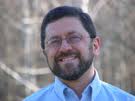 makes clear that just as an acorn grows into a tree and yet remains the same plant, so the Catholic Church is a living organism that has grown from the faith of the earliest Christians into the body of Christ we know today. Hosted by Kris McGregor
makes clear that just as an acorn grows into a tree and yet remains the same plant, so the Catholic Church is a living organism that has grown from the faith of the earliest Christians into the body of Christ we know today. Hosted by Kris McGregor
[powerpress]
Also visit Mike’s “Discerning Hearts†page for more audio downloads and information!
Tags: abortion, catholic, catholic podcast, catholic prayer, cathollc spirituality, church fathers, fathers of the church, kris mcgregor, mike aquilina, servant books
This entry was posted on Sunday, January 16th, 2011 at 12:44 pm
You can follow any responses to this entry through the RSS 2.0 feed.
The Second Sunday in Ordinary Time – from the Gospel of John the full reading and reflection
“Behold the Lamb of God!”
an excerpt from today’s reflection by Don Schwager: 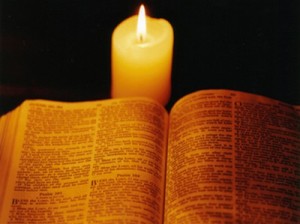
Why did God the Father send his Son into the world? When John the Baptist encountered Jesus he called Jesus the Lamb of God. John did this to signify Jesus’ mission as the One who would redeem a fallen human race from sin and destruction. The blood of the Passover Lamb (Exodus 12) delivered the Israelites in Egypt from death. The blood of Jesus, the true Passover Lamb who offered his life up for us on the cross as an atoning sacrifice for our sins (1 Corinthians 5:7), delivers us from everlasting death and destruction. It is significant that John was the son of a priest, Zachariah, who participated in the daily sacrifice of a lamb in the temple for the sins of the people (Exodus 29). In Jesus he saw the true and only sacrifice which delivers us from sin.
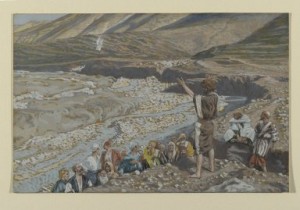 When John says he did not know Jesus he was referring to the hidden reality of Jesus divinity. But the Holy Spirit in that hour revealed to John Jesus’ true nature, such that John bore witness that this is the Son of God. How can we be certain that Jesus is truly the Christ, the Son of God? The Holy Spirit makes Christ known to us through the gift of faith. God gives us freely of his Spirit that we may comprehend the great mystery and plan of God to unite all things in his Son, our Lord Jesus Christ (Ephesians 1:10). Do you seek to grow in the knowledge and love of Jesus Christ?
When John says he did not know Jesus he was referring to the hidden reality of Jesus divinity. But the Holy Spirit in that hour revealed to John Jesus’ true nature, such that John bore witness that this is the Son of God. How can we be certain that Jesus is truly the Christ, the Son of God? The Holy Spirit makes Christ known to us through the gift of faith. God gives us freely of his Spirit that we may comprehend the great mystery and plan of God to unite all things in his Son, our Lord Jesus Christ (Ephesians 1:10). Do you seek to grow in the knowledge and love of Jesus Christ?
“Lord Jesus Christ, fill me with the power of your Holy Spirit and let me grow in the knowledge of your love and truth. Let your Spirit be aflame in my heart that I may know and love you more fervently and strive to do your will in all things.”
for the full reflection visit : Daily Reading and Meditation
Tags: catholic, catholic podcast, catholic prayer, cathollc spirituality, don schwager, gospel of john, lamb of god, second sunday in ordinary time
This entry was posted on Sunday, January 16th, 2011 at 12:06 am
You can follow any responses to this entry through the RSS 2.0 feed.
Show 15 – Women Healed – Recurrent Spontaneous Abortion
Women Healed! An important turning point in the series, as Dr. Hilgers explores how a great many of the medical conditions experienced by women (and which effect men in an indirect way) can be understood and healed: Recurrent Spontaneous Abortion (miscarriage)… What causes miscarriage? Why is there an increase in the numbers that have occured? What can be done?..find out.
“Your Fertility Care Consultâ€
with Dr. Thomas Hilgers, founder of the Pope Paul VI Institute
for The Study of Human Reproduction
hosted by Kris McGregor
[powerpress]
Tags: catholic, catholic podcast, catholic prayer, cathollc spirituality, dr. thomas hilgers, fertility care, kris mcgregor, miscarriage, pope paul vi institute, recurrent spontaneous abortion, Recurrent Spontaneous Abortion Women Healed, thomas hilgers
This entry was posted on Saturday, January 15th, 2011 at 10:24 pm
You can follow any responses to this entry through the RSS 2.0 feed.
The First Saturday in Ordinary Time – from the Gospel of Mark the full reading and reflection
“Many tax collectors and sinners were sitting with Jesus”
an excerpt from today’s reflection by Don Schwager: 
When the Pharisees challenged his unorthodox behavior in eating with public sinners, Jesus’ defence was quite simple. A doctor doesn’t need to visit healthy people; instead he goes to those who are sick. Jesus likewise sought out those in the greatest need. A true physician seeks healing of the whole person – body, mind, and spirit. Jesus came as the divine physician and good shepherd to care for his people and to restore them to wholeness of life.The orthodox were so preoccupied with their own practice of 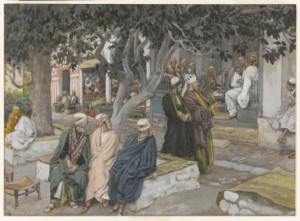 religion that they neglected to help the very people who needed care. Their religion was selfish because they didn’t want to have anything to do with people not like themselves. Jesus stated his mission in unequivocal terms: I came not to call the righteous, but to call sinners. Ironically the orthodox were as needy as those they despised. All have sinned and fall short of the glory of God (Romans 3:23). The Lord fills us with his grace and mercy. And he wants us, in turn, to seek the good of our neighbors, including the unlikeable and the trouble-maker by showing them the same kindness and mercy which we have received. Do you thank the Lord for the great kindness and mercy he has shown to you?
religion that they neglected to help the very people who needed care. Their religion was selfish because they didn’t want to have anything to do with people not like themselves. Jesus stated his mission in unequivocal terms: I came not to call the righteous, but to call sinners. Ironically the orthodox were as needy as those they despised. All have sinned and fall short of the glory of God (Romans 3:23). The Lord fills us with his grace and mercy. And he wants us, in turn, to seek the good of our neighbors, including the unlikeable and the trouble-maker by showing them the same kindness and mercy which we have received. Do you thank the Lord for the great kindness and mercy he has shown to you?
“Lord Jesus, our Savior, let us now come to you: Our hearts are cold; Lord, warm them with your selfless love. Our hearts are sinful; cleanse them with your precious blood. Our hearts are weak; strengthen them with your joyous Spirit. Our hearts are empty; fill them with your divine presence. Lord Jesus, our hearts are yours; possess them always and only for yourself.” (Prayer of Augustine, 4th century)
for the full reflection visit : Daily Reading and Meditation
Tags: catholic, catholic podcast, catholic prayer, cathollc spirituality, don schwager, gospel of mark, grace and mercy, pharisees, public sinners
This entry was posted on Saturday, January 15th, 2011 at 8:48 pm
You can follow any responses to this entry through the RSS 2.0 feed.
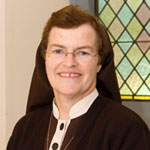 Part 1 of 3…Sr. Briege McKenna O.S.C. is a tremendous blessing for all of us in the Church! “The Power of the Sacraments” is a beautiful work which helps us all to appreciate the gift of grace that flows through the sacraments. There is such a hunger in the hearts of God’s children today for healing and peace. Sr. Briege, in her beautiful maternal nurturing way, helps us to see that the answer is right in front of us reaching out to us right now…he is Jesus Christ. “Miracles Do Happen” is her beautiful book recounting her miraculous healing and her call to mission to the world. It also expresses her great love and concern for the priesthood. Her insights are tremendous…her love for Christ and her bride, the Church, is a glorious witness and light for today’s world. She is truly one of the most inspiring persons I have ever encountered!
Part 1 of 3…Sr. Briege McKenna O.S.C. is a tremendous blessing for all of us in the Church! “The Power of the Sacraments” is a beautiful work which helps us all to appreciate the gift of grace that flows through the sacraments. There is such a hunger in the hearts of God’s children today for healing and peace. Sr. Briege, in her beautiful maternal nurturing way, helps us to see that the answer is right in front of us reaching out to us right now…he is Jesus Christ. “Miracles Do Happen” is her beautiful book recounting her miraculous healing and her call to mission to the world. It also expresses her great love and concern for the priesthood. Her insights are tremendous…her love for Christ and her bride, the Church, is a glorious witness and light for today’s world. She is truly one of the most inspiring persons I have ever encountered!
[powerpress]
Click here to be taken to Sr. Briege’s website “St. Clare Sisters Retreat Ministry”
You can find both of Sr. Briege McKenna’s books here
St. Clare Sisters Retreat Ministry
P.O. Box 1559
Palm Harbor, FL 34682, U.S.A.
Office: #727-786-3821
Fax: #727-787-3741
Prayerline: #727-781-5906
www.sisterbriege.com
prayer@sisterbriege.com
info@sisterbriege.com
For more Sister Briege on Inside the Pages:
IP#65 Sr. Briege McKenna – The Power of the Sacraments part 2 on Inside the Pages
IP#66 Sr. Briege McKenna – The Power of the Sacraments part 3 on Inside the Pages
Tags: Briege McKenna, catholic, catholic podcast, catholic prayer, cathollc spirituality
This entry was posted on Friday, January 14th, 2011 at 8:57 am
You can follow any responses to this entry through the RSS 2.0 feed.
The First Friday in Ordinary Time – from the Gospel of Mark the full reading and reflection
“We never saw anything like this!”
an excerpt from today’s reflection by Don Schwager: 
Do you know the healing power of forgiveness? Jesus’ treatment of sinners upset the religious teachers of the day. When a cripple was brought to Jesus because of the faith of his friends, Jesus did the unthinkable. He first forgave the man his sins. The scribes regarded this as blasphemy because they understood that only God had authority to forgive sins and to unbind 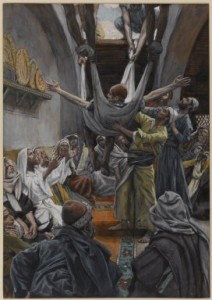 a man or woman from their burden of guilt. Jesus claimed an authority which only God could rightfully give. Jesus not only proved that his authority came from God, he showed the great power of God’s redeeming love and mercy by healing the cripple of his physical ailment. This man had been crippled not only physically, but spiritually as well. Jesus freed him from his burden of guilt and restored his body as well. The Lord is every ready to bring us healing of body, soul, and mind. Do you allow anything to keep you from Jesus?
a man or woman from their burden of guilt. Jesus claimed an authority which only God could rightfully give. Jesus not only proved that his authority came from God, he showed the great power of God’s redeeming love and mercy by healing the cripple of his physical ailment. This man had been crippled not only physically, but spiritually as well. Jesus freed him from his burden of guilt and restored his body as well. The Lord is every ready to bring us healing of body, soul, and mind. Do you allow anything to keep you from Jesus?
“Lord Jesus, through your merciful love and forgiveness you bring healing and restoration to body, soul, and mind. May your healing power and love touch every area of my life – my innermost thoughts, feelings, attitudes, and memories. Pardon my offences and transform me in the power of your Holy Spirit that I may walk confidently in your truth and righteousness.”
for the full reflection visit : Daily Reading and Meditation
Tags: catholic, catholic podcast, catholic prayer, cathollc spirituality, don schwager, gospel of mark
This entry was posted on Friday, January 14th, 2011 at 12:42 am
You can follow any responses to this entry through the RSS 2.0 feed.

